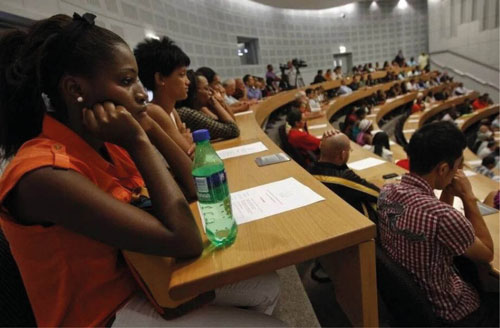Long viewed as a multicultural and inclusive nation, Canada admitted recently that its immigration system is tinged with racism and concern has risen over high rejection rates for African students.
“I have met people who have had their visas re-fused more than five times,” even though they had been accepted by Canadian universities, says Serge Nouemssi, white coat and pipette in hand.
Originally from Cameroon, the 33-year-old bi-ology student has been working on his doctorate for more than three years in a laboratory at the University of Quebec at Trois-Rivieres (UQTR).
Surrounded by greenery, the campus located halfway between Montreal and Quebec City hosts almost 15,000 students, including the largest pro-portion of Africans in the province — 65 percent of international students.
But “we have seen rejections of up to 80 percent of applicants coming from Africa,” says the school’s rector, Christian Blanchette, who noted it has been an ongoing problem “for several years.”
In a report quietly released at the end of Sep-tember, the national immigration department said it “recognizes the presence of racism in Canada and within our own organization.”
According to federal data, Quebec is the Cana-dian province with the highest rejection rate of Afri-can students — around 70 percent from French-speaking African nations between 2017 and 2021.
The data says applications from France, Britain or Germany to study in Quebec are almost always accepted — approximately a 90 percent approval rate.
As well as having to pay tuition ranging on average from Can$17,000 (US$12,750) to Can$19,000 per academic year to study in Quebec and rising up to Can$50,000, African students must also provide financial guarantees.
“For us Africans, generally they (immigration officials) insist on proof of financial means” to be able to afford to live and study in Canada, explains Nouemssi.
“There are cases where we have demonstrated financial resources that were close to one million dollars,” explains Caroline Turcotte-Brule, an im-migration lawyer. “The agent replied that our client did not have enough financial resources.”—APP










